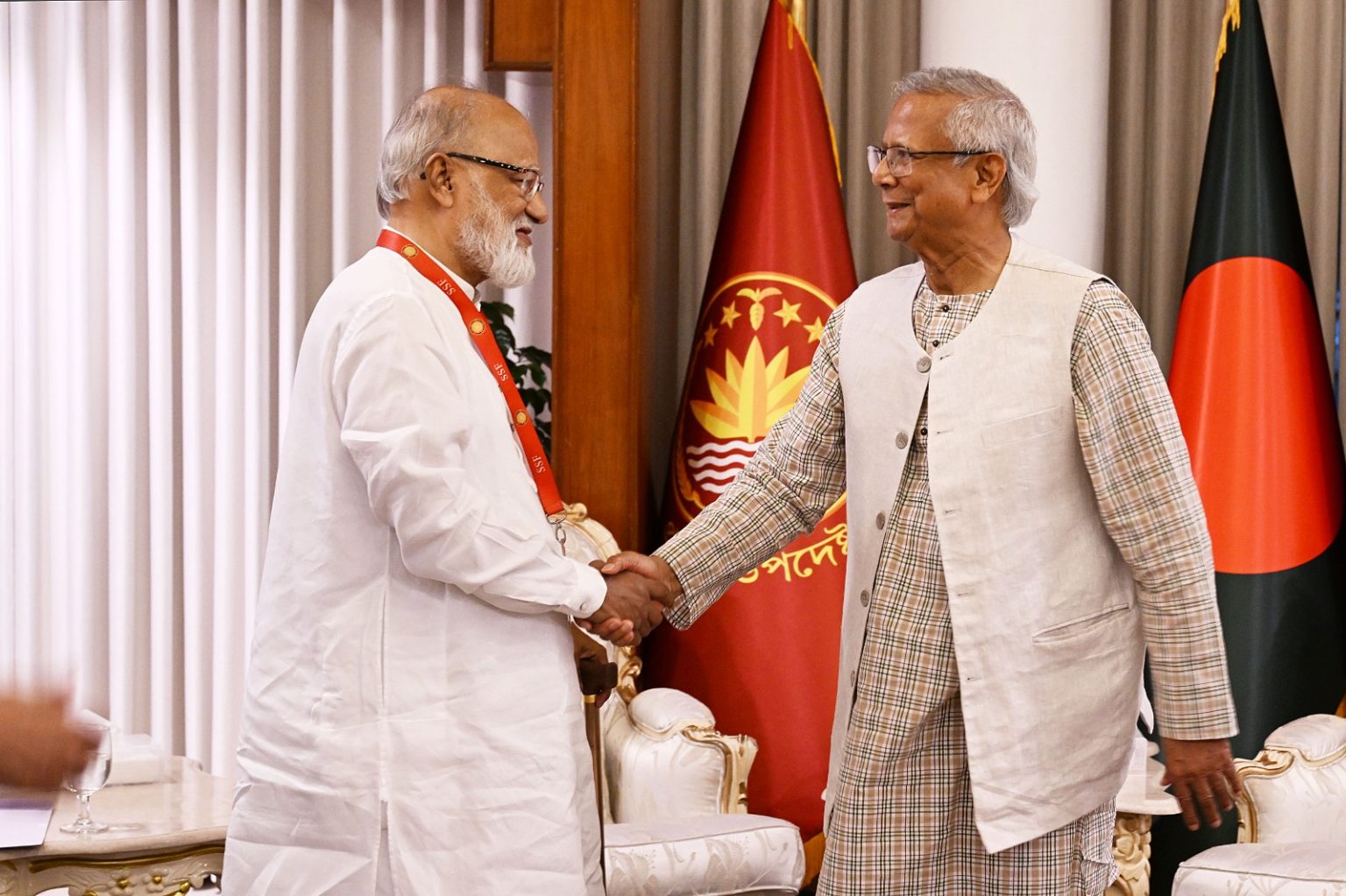Chief Adviser Muhammad Yunus on Saturday initiated dialogue with major political parties, apparently seeking to resolve the deepening political crisis that reportedly left him frustrated and contemplating resignation.
In the evening, Yunus met leaders from the Bangladesh Nationalist Party (BNP), Bangladesh Jamaat-e-Islami, and the newly formed student-led National Citizen Party (NCP) at his official residence Jamuna in Dhaka.
The meeting followed a council of advisers’ session earlier in the day, where the interim government reaffirmed its commitment to three core responsibilities such as conducting elections, implementing reforms, and ensuring justice for crimes committed during last year’s uprising that led to Sheikh Hasina’s ouster.
Following the meeting, BNP reiterated its demand for holding the next general election by December.
“It is possible to hold the election even before December,” said Salahuddin Ahmed, a BNP standing committee member. He also confirmed that the party demanded the resignation of three advisers, citing their role in undermining the neutrality of the interim government. The government must reconstitute the council of advisers, he said.
“We specifically called for the resignation of the National Security Adviser and two advisers involved with student affairs,” he added.
The four-member BNP delegation was led by standing committee member Khandaker Mosharraf Hossain, who handed a written statement to the chief adviser outlining the party’s position and recommendations, despite no formal agenda being set for the meeting.
“We are not against reforms or the trial of the previous regime,” Mosharraf said. “But the interim government’s primary duty is to arrange a free, fair, and credible election — and that must be held by December.”
He emphasised that election, reform, and trial were three distinct matters.
“Reforms and justice are continuous processes. If elected, BNP will continue the reform efforts,” he added.
On the issue of prosecuting the former ruling party, he said, “BNP leaders and activists were the main victims under the fascist regime. We support a fair trial, and it must be conducted with full judicial independence.”
Another BNP leader, Amir Khosru Mahmud Chowdhury, warned that any delay in the election could create openings for the return of fascist forces.
Moyeen Khan, also a standing committee member, demanded a clear election timeline be announced without delay.
“Once the government sets an election date, stability will begin to return,” he said.
Nobel laureate Muhammad Yunus assumed took over as head of the interim administration after the last year’s mass uprising that ousted former prime minister Sheikh Hasina, who was labeled as authoritarian by her opponents.
His takeover initially drew widespread optimism, and he enjoyed strong backing from both civil and military institutions as well as major political groups.
However, over time, public enthusiasm has waned as the government has struggled to restore order, meet expectations, and manage growing street protests.
Tensions have been further fuelled by controversial decisions, including the proposed Arakan humanitarian corridor, which has drawn criticism from both political factions and the military.
The Bangladesh Nationalist Party (BNP), one of the country’s largest parties, has demanded elections by December while government maintains that polls can be held between December 2025 and June 2026, a timeline the BNP rejects.
In resent street protests, the BNP men accused the government of being bias towards student-led NCP and urged it to show the doors to the advisers who came from among the students during the last year’s formation of the interim administration.
The BNP, which run the country for nearly 15 years, are out of the power since 2006, and the party was mounting pressure of the government to hold the election for democratic transition. Apparently, the election timeline and the government’s reported bias have triggered widening gap between the BNP and the interim administration.
As pressure mounts, political stakeholders continue to urge Yunus to stay the course, engage in inclusive dialogue, and swiftly unveil a credible electoral roadmap.
Leaders of the Jamaat-e-Islami, which also urged the government to open dialogue and announce roadmap, joined the meeting with the Chief Adviser. The meeting between the leaders of the NCP and the Chief Adviser was in progress until filing of the report.


